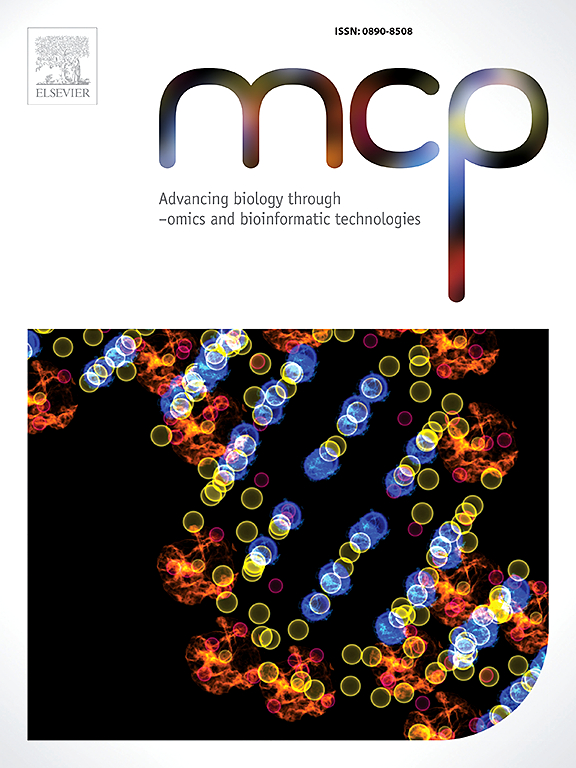Apigetrin对肝癌细胞影响的综合分析:来自生物信息学、体外研究和下一代转录组测序的见解。
IF 2.3
3区 生物学
Q3 BIOCHEMICAL RESEARCH METHODS
引用次数: 0
摘要
尽管许多人试图了解肝癌发展背后的分子机制,但它仍然构成了一个重大的全球健康挑战。转录组测序是分子生物学中一个强大的工具,在揭示肝细胞癌(HCC)背后复杂的基因表达谱方面发挥了关键作用。在本研究中,我们共鉴定了808个差异表达基因(deg),其中584个表现出下调,224个表现出上调。我们使用了多种生物信息学工具和平台,包括基因本体(GO)、京都基因和基因组百科全书(KEGG)途径富集和定位、蛋白质-蛋白质相互作用(PPI)和GEPIA。我们发现DEGs与凋亡细胞死亡过程有关,并鉴定出中枢基因,即CASP8、RB1和TGFBR2。这些基因通过GEPIA分析和western blot实验进一步验证。我们的研究结果共同表明,apigetrin有可能调节与肝癌相关的基因,并触发导致肝癌细胞凋亡的分子途径。本研究强调了apigetrin作为HCC创新治疗策略的潜力,强调了进一步研究阐明其作用机制和评估其临床疗效的必要性。本文章由计算机程序翻译,如有差异,请以英文原文为准。
Comprehensive analysis of Apigetrin's effects on liver cancer cells: Insights from bioinformatics, in vitro studies, and next-generation transcriptome sequencing
Despite numerous attempts to understand the molecular mechanisms behind the development of liver cancer, it continues to pose a significant worldwide health challenge. Transcriptome sequencing, a powerful tool in molecular biology, has played a pivotal role in uncovering the intricate gene expression profiles underlying hepatocellular carcinoma (HCC). In the present study, we identified a total of 808 differentially expressed genes (DEGs), with 584 exhibiting downregulation, and 224 showing upregulation following apigetrin treatment. We utilized a combination of bioinformatics tools and platforms, including Gene Ontology (GO), Kyoto Encyclopedia of Genes and Genomes (KEGG) pathway enrichment and mapping, Protein-Protein Interaction (PPI), and GEPIA. We found that DEGs were related to the apoptotic cell death process and identified hub genes, namely CASP8, RB1, and TGFBR2. These genes were further validated through both GEPIA analysis and western blot experiments. Our findings collectively demonstrate that apigetrin has the potential to modulate genes related to liver cancer and trigger molecular pathways that lead to apoptotic cell death in liver cancer cells. This study underscores the potential of apigetrin as an innovative treatment strategy for HCC, emphasizing the need for additional research to elucidate its mechanisms of action and evaluate its clinical efficacy.
求助全文
通过发布文献求助,成功后即可免费获取论文全文。
去求助
来源期刊

Molecular and Cellular Probes
生物-生化研究方法
CiteScore
6.80
自引率
0.00%
发文量
52
审稿时长
16 days
期刊介绍:
MCP - Advancing biology through–omics and bioinformatic technologies wants to capture outcomes from the current revolution in molecular technologies and sciences. The journal has broadened its scope and embraces any high quality research papers, reviews and opinions in areas including, but not limited to, molecular biology, cell biology, biochemistry, immunology, physiology, epidemiology, ecology, virology, microbiology, parasitology, genetics, evolutionary biology, genomics (including metagenomics), bioinformatics, proteomics, metabolomics, glycomics, and lipidomics. Submissions with a technology-driven focus on understanding normal biological or disease processes as well as conceptual advances and paradigm shifts are particularly encouraged. The Editors welcome fundamental or applied research areas; pre-submission enquiries about advanced draft manuscripts are welcomed. Top quality research and manuscripts will be fast-tracked.
 求助内容:
求助内容: 应助结果提醒方式:
应助结果提醒方式:


